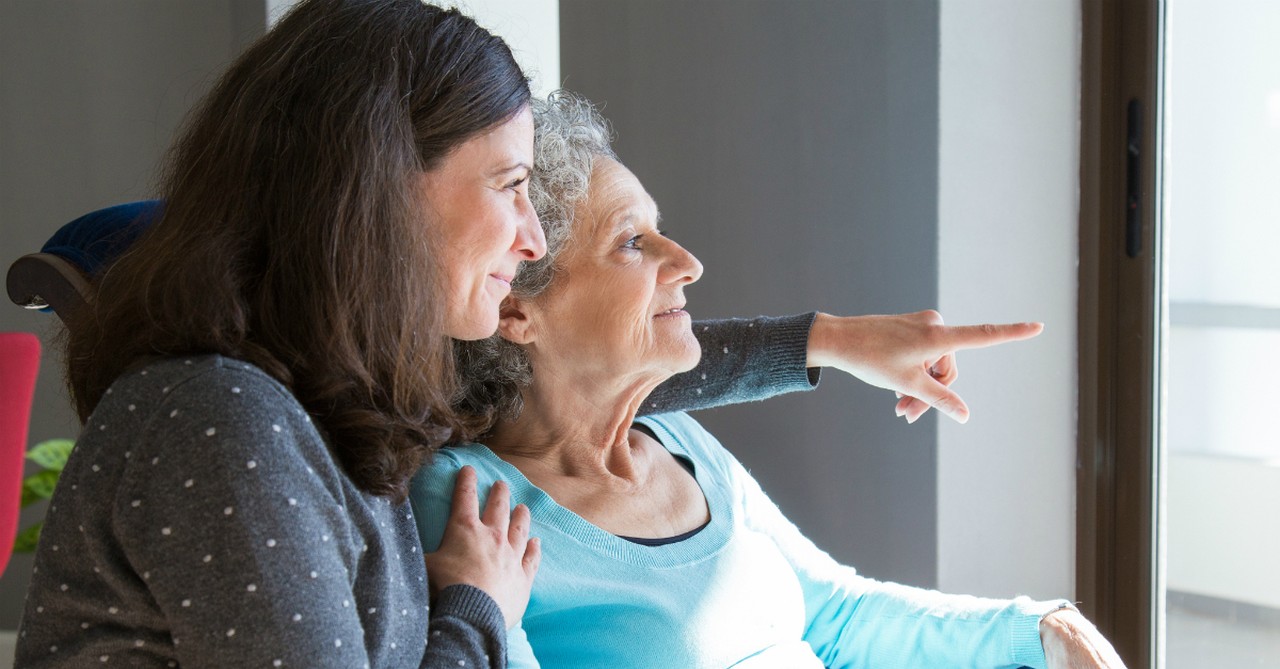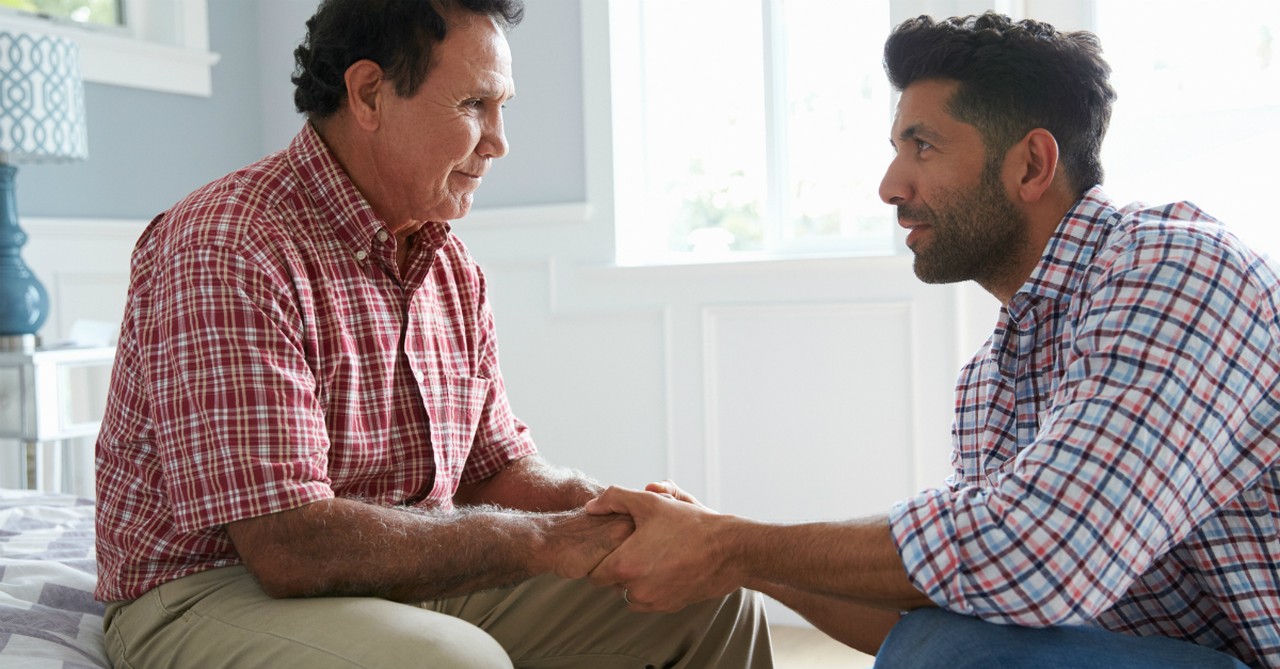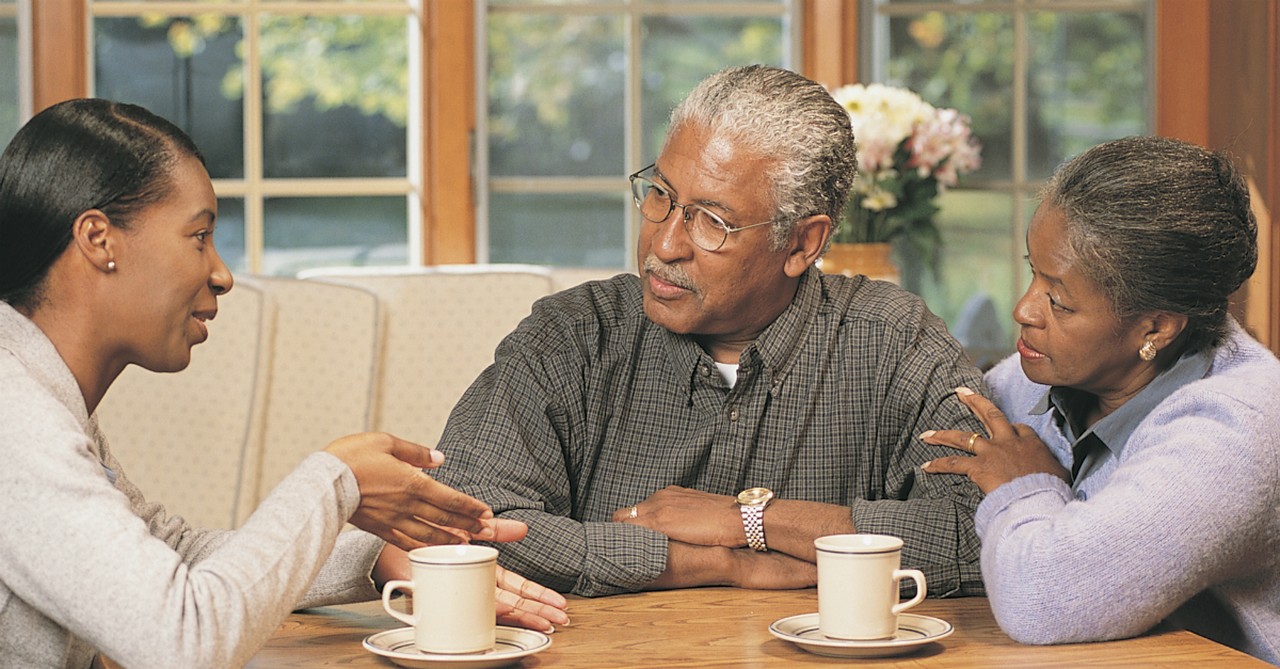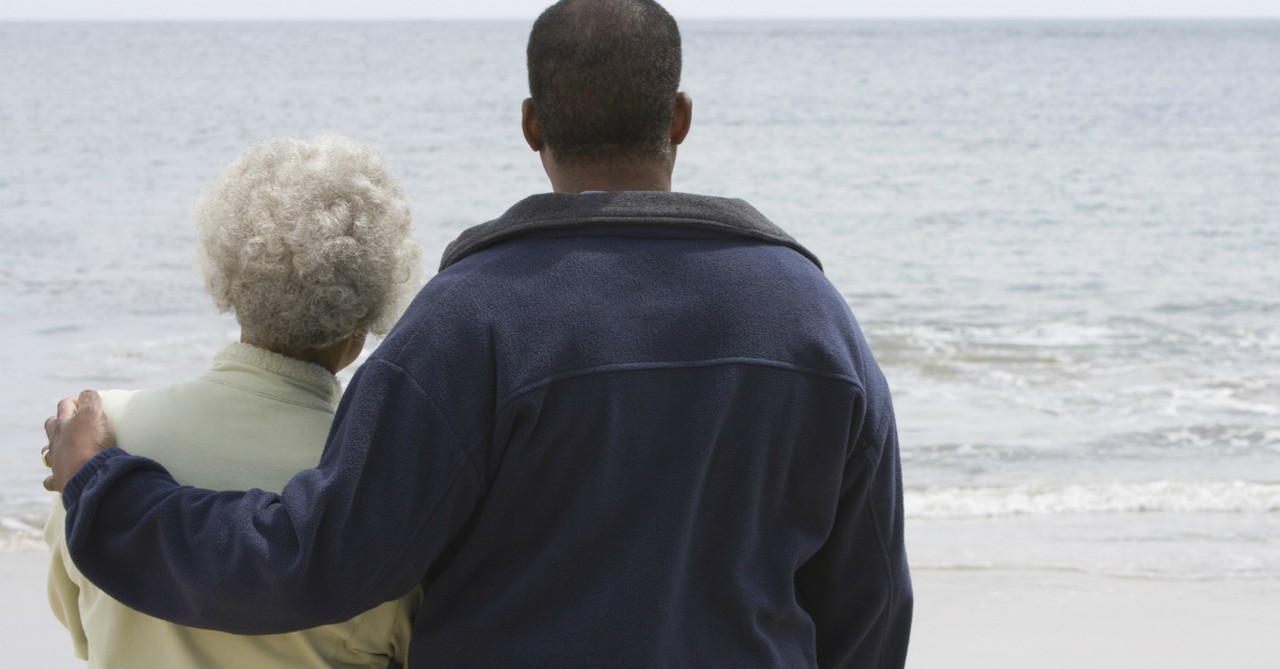
According to a 2015 study by the National Alliance for Caregiving and the AARP Public Policy Institute, about 34.2 million Americans provided unpaid care to an adult age 50 or older in 2014. The estimated prevalence of caring for an adult is 16.6 percent, or 39.8 million Americans. “On average,” the study says, “caregivers spend 24.4 hours per week providing care to their loved one.”
This kind of caregiving can burden the caregiver and present many stressful situations. There are often many emotions involved, and also practical problems to solve. Although there are similar issues to consider, every caregiving set of circumstances is different.
Grown children who are caregivers will likely want to care for their loved one, but it still can be a rough road. Here are eight ways to smooth the transition.
1. Be Proactive

1. Be Proactive
SLIDE 1 OF 5
Perhaps the easiest time to smooth the transition into caregiving is before the need arises—sooner rather than later. Various scriptures—Proverbs 23:22; Ephesians 6:2; 1 Timothy 5:4, 8; Psalm 71:9—encourage us to join with God in honoring and caring for elderly parents. It’s helpful to have an open conversation with loved ones before they become sick or incapacitated. When the time comes for caregiving, they may be unable to communicate their wishes clearly. It might be helpful for later to record this conversation, if the loved one agrees.
Discuss what they might need from you. Consider their initial thoughts about caregiving and try to dispel their fears about aging and their final days. This might be a good time to start a notebook or files for caregiving information and forms. Include a special section for any information the loved one communicates in this early conversation.
2. Be Honest
The caregiver should honestly assess his or her own readiness to step into a caregiving role. This can be tough because it’s often difficult to switch caregiving roles with a parent. The caregiver might ask, “Am I emotionally, mentally, and financially prepared for this new level of responsibility?”
The adult child should consider whether he or she is up to physical challenges in caregiving and the time it will likely take. Ask, “How will caregiving and my job be balanced?” and “What about my financial situation—can I handle this? If there is financial pressure, one option might be to become a paid caregiver.
Also, research benefits on eligibility for government programs for caregiving, such as qualifying for tax relief. The loved one might be claimed as a dependent, or programs might allow caregivers to deduct medical expenses.
Photo Credit: ©GettyImages/monkeybusinessimages
3. Be Aware

3. Be Aware
SLIDE 2 OF 5
God wants us to be aware of needs and ask Him for wisdom (James 1:5). In order to be aware of a loved one’s caregiving requirements, ask clarifying questions about the extent and kind of care needed. To determine the extent, ask questions like: Is there a risk of falls? Is incontinence a problem? Are there behavioral changes or changes in cognitive abilities? Does the loved one get confused, with lapses in memory?
To determine the kind of care necessary, consider different options, including assisted living, independent living communities, nursing homes, aging in the caregiver’s own home, or living with family. Assisted living care is for the relatively independent, while active seniors are usually in independent living communities with some medical support.
Nursing homes offer the fullest care—a 24-hour staff and medical surveillance. Aging at home offers the highest opportunity for independence, but usually with assistance and family adjustments. Living with family members can be comforting, but everyone must be prepared for new choices and changes.
4. Be United
When an elderly parent needs care, sibling relationships may be challenged. Old feelings and roles from childhood, including areas of competition, may arise. In trying to determine who should or shouldn’t do the caregiving and who is in charge of caregiving responsibilities, siblings may have differing ideas about what their parent needs. To complicate matters, the parent may tell the siblings different things!
This is not a time for siblings to make assumptions, get resentful, or fall back into childhood roles that might not work anymore. Remember: people normally change over the years. See siblings as they are now, not decades ago. Set aside past contention to create the best possible decisions today. Caregiving requires a united front for the parent’s sake.
Share information; get on the same page. Spell out what the caregiver will do and what siblings might contribute to the care. Caregiver.org offers additional helpful suggestions for caregiving with siblings.
Photo Credit: ©GettyImages/nortonrsx
5. Be Prepared

5. Be Prepared
SLIDE 3 OF 5
Proverbs 15:22 says, “with many advisers” plans succeed. Part of the plan for caregiving is discovering the parent’s financial condition and resources like stock and real estate they have that might help. Their financial advisers, health insurance insurers, and other professionals may need to be consulted. Get names and contact information for their financial and health representatives, and add these to the caregiving notebook or files.
Being prepared also includes obtaining important legal documents. There are a number of documents a caregiver needs, and the parent’s wishes should be honored.
1. Secure financial and medical powers of attorney.
2. An Advance Directive (living will form) describes medical treatments the loved one does or does not want—such as a Do Not Resuscitate (DNR) order, if they cannot speak for themselves. A health-care proxy names the specific person to make decisions on their behalf.
3. A will handles distribution of assets and other legal decisions.
4. A trust—whether revocable, irrevocable, or charitable—also is used for distribution of assets.
5. A representative for the Health Insurance Portability and Accountability Act (HIPAA) helps protect the privacy of patients.
Photo Credit: ©GettyImages/Comstock
6. Be Supportive

6. Be Supportive
SLIDE 4 OF 5
Be supportive by staying up-to-date with their doctor visits and help them by scheduling reminders. Consider practical purchases that might help them cope with physical challenges: perhaps a cane or walker, or clothing with Velcro or front zippers if they struggle with buttons.
Caregivers should strive to make the parent as comfortable as possible, not only physically, but also emotionally. Adult children might offer companionship—a wonderful opportunity to make new memories and remember old ones together. Be patient (Ephesians 4:2) with elderly loved ones as they struggle to adapt to their new normal.
7. Be Respectful
As much as possible, promote the loved one’s independence. When help is necessary, respectfully explain that the assistance isn’t about the parent losing independence, but rather about helping him or her maintain independence safely. Also, it is important to respect the privacy and intimacy of married loved ones who have caregivers.
Role reversal might be scary to the loved one, but compassion, kindness, humility, gentleness, and patience (Colossians 3:12)—joined to respect (Leviticus 19:32)—bring comfort and peace. Help the loved one feel confident, accepted, and loved.
Photo Credit: ©GettyImages/moodboard
8. Be Open

8. Be Open
SLIDE 5 OF 5
As grown children watch their parents decline, the grieving process often begins early. In order to avoid burnout, it’s helpful for a caregiver to seek emotional support. This may come from a family member or friend, the clergy or a health care professional, a caregiving support group, or even from caregiver sites on Facebook.
Don’t hesitate to ask others for help (Ecclesiastes 4:9-10). A communal effort of caregiving is not only helpful to the loved one, but also to the caregiver. Perhaps a friend or neighbor can take Mom shopping or go shopping for her. Maybe a family member can take Dad out for lunch. Don’t ever feel caregiving must be shouldered alone.
Photo Credit: ©GettyImages/KatarzynaBialasiewicz

Originally published April 23, 2020.







